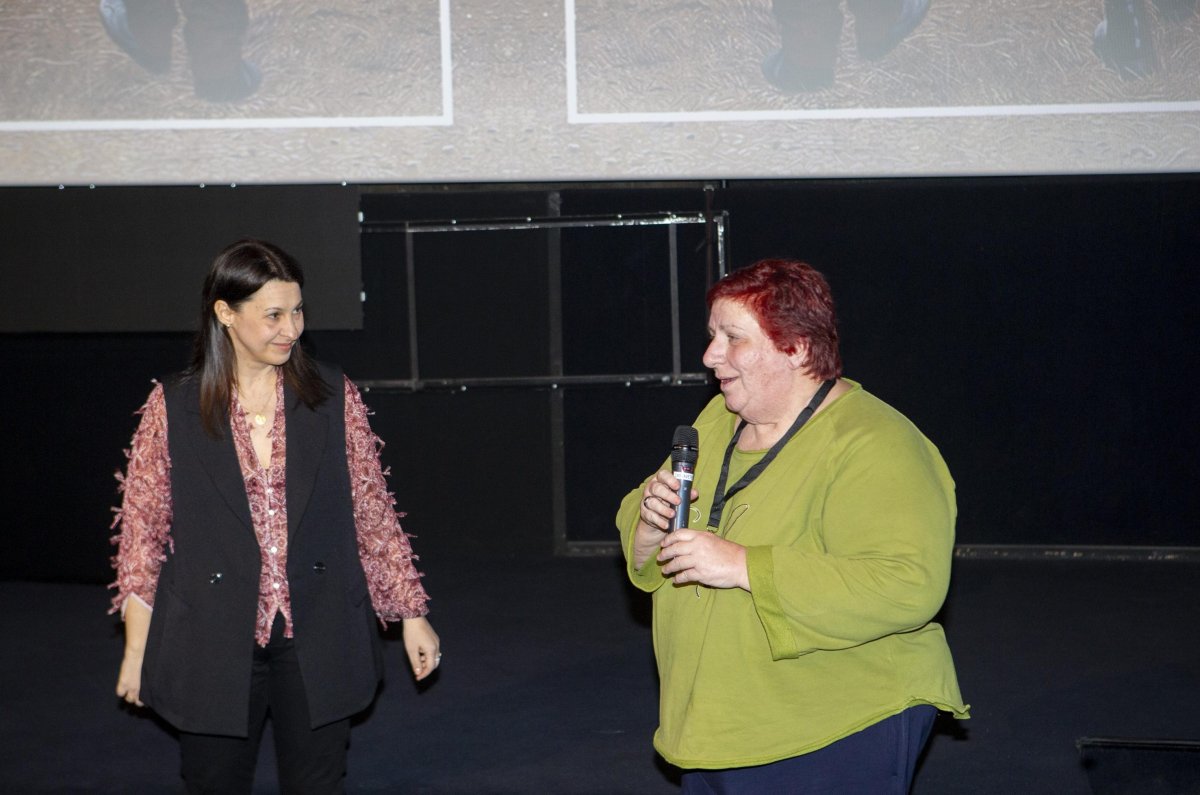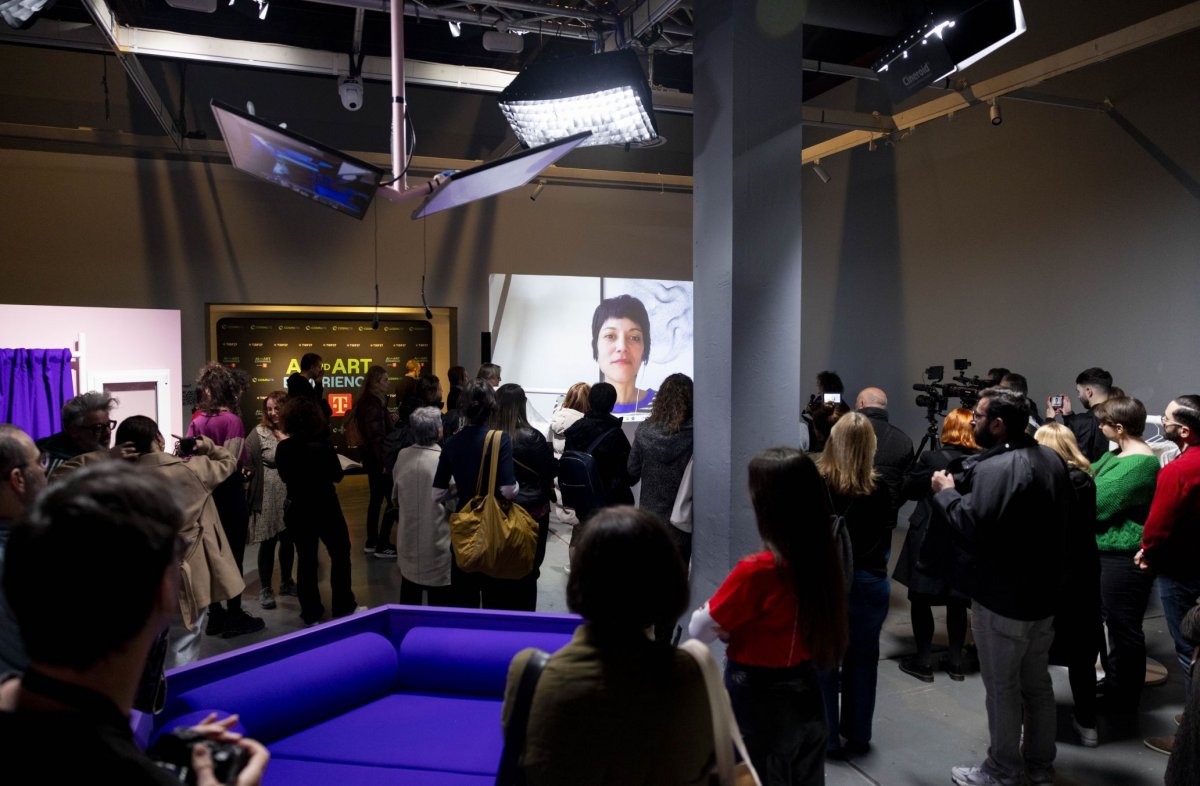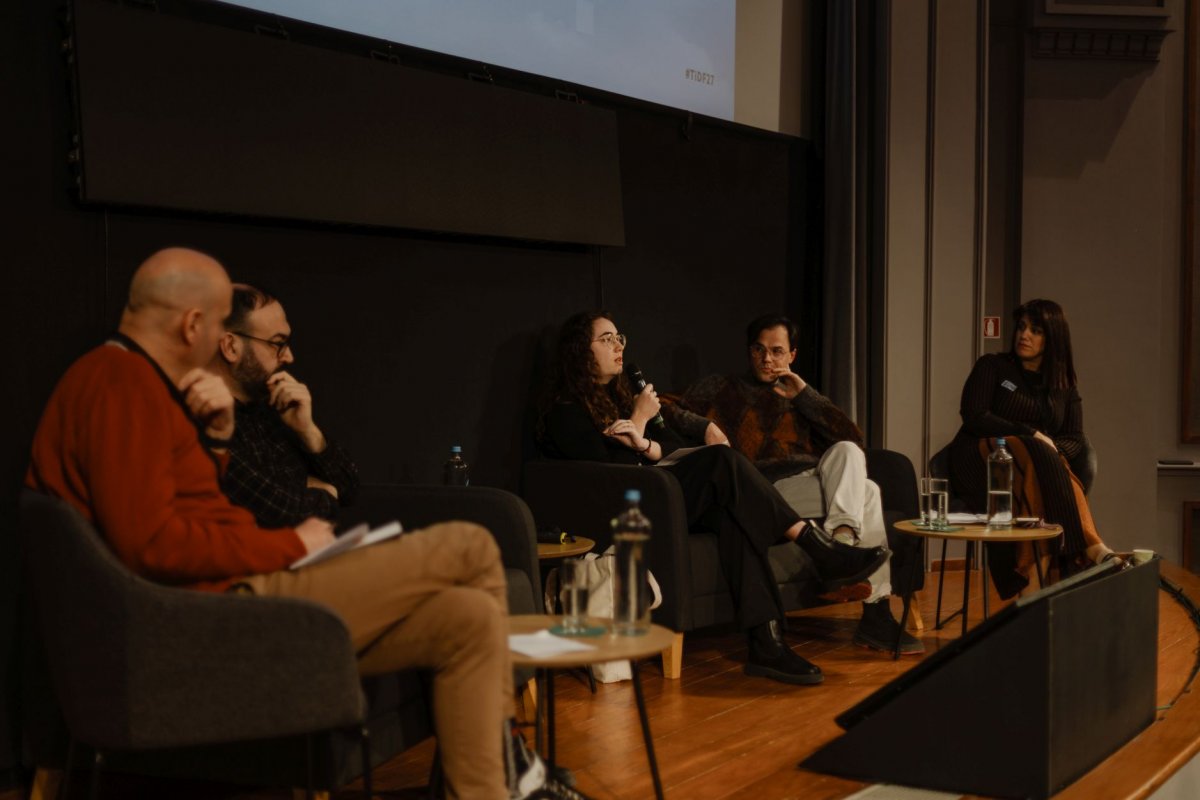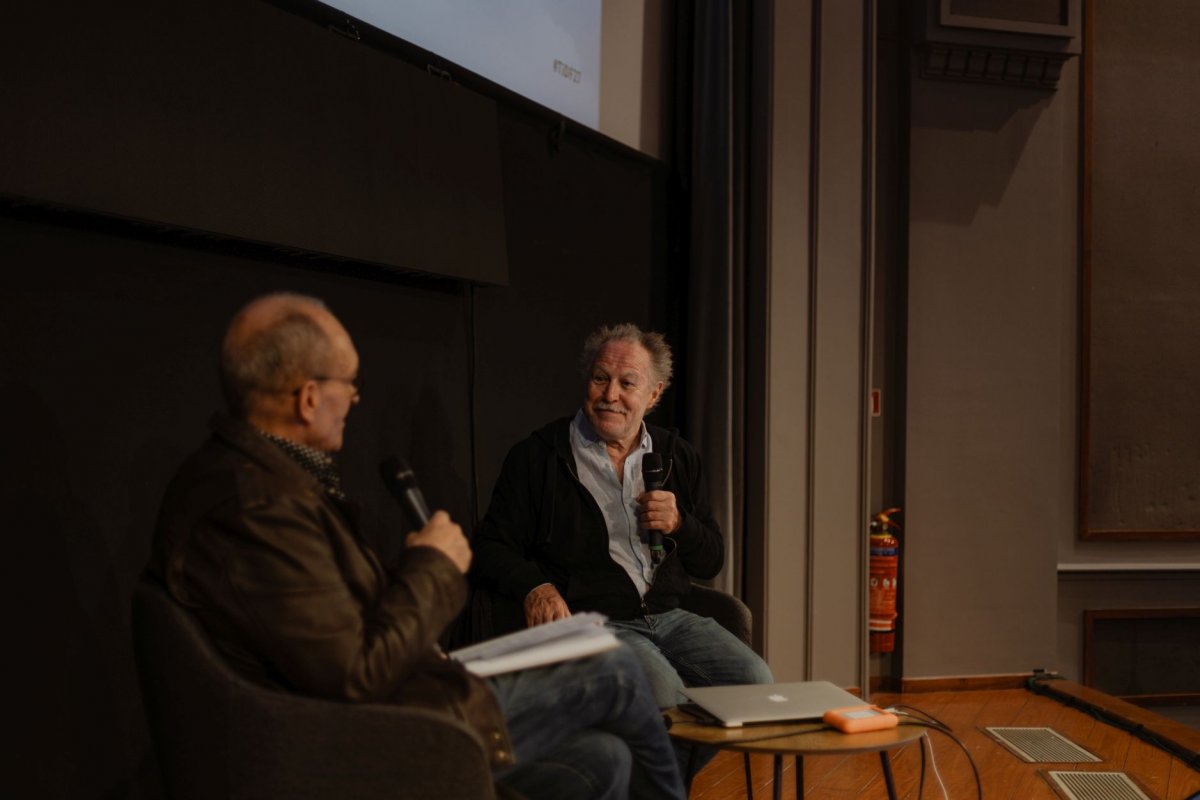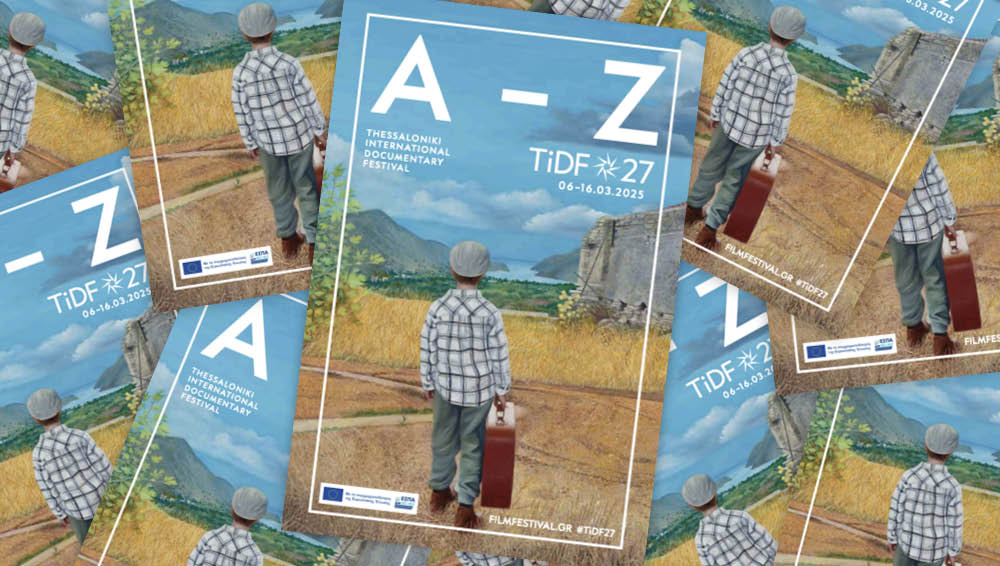This year, the 44th Thessaloniki International Film Festival presents a retrospective tribute to Otar Iosseliani, one of the greatest artists of European cinema. In the framework of the press conference given today, Wednesday, November 26th 2003, at Warehouse C of the Thessaloniki port, the Director of the Thessaloniki Film Festival, Michel Demopoulos presented the Georgian director saying, “The Festival is honored to have Otar Iosseliani as its guest this year. Of course, it isn’t his first year attending the Festival, since he’s been here twice before as a friend of Thessaloniki and of Greece”.
Mr. Iosseliani spoke about the early days of cinema in Georgia, about Georgia and Perestroika, as well as the status of cinema before Perestroika: “Everything was clear in Georgia then. There were those that obeyed the regime and those that opposed it. The ones that opposed the regime were always censored. They had to receive illegal support from those in power, from the same people that censored their work. Therefore, all of us were in the same situation. However, many films were shot during that period. They might have been banned but still, they were made. Consequently, today we are left with only the traces of an era’s notion, during which artistic expression was drowned out”.
“Georgia is a dream”
Otar Iosseliani abandoned Georgia during that difficult period to work abroad. As he said, “Georgia is a dream for us. It doesn’t exist. Each one of us has his own understanding of Georgia, which we try to comprehend, but is always elusive. When I lived in Georgia I, along with other cinematographers, was able to shoot films amidst the difficulties. Between us and Moscow was Shevardnadze, who protected us. Today Georgia is not the Georgia where I shot my first films. Today it’s rather difficult for me to return there and shoot a film with all the problems that exist. It’s probably better for the younger generation do shoot films in Georgia. In my heart I keep everything that Georgia has given to me and I depict it in my films. There is no cinema in Georgia nowadays; there are no funds for it. Directors need 8 or 9 years to complete a film”.
“Greeks have infected American cinema”
Speaking about the freedom in American cinema, Otar Iosseliani said, “Greeks have infected American cinema without meaning to. The methodology of using a single hero, Prometheus, who could save the entire world, is the standard that Hollywood uses these days. Take Shevardnadze, for example, who can envelope good and evil; not that Prometheus or Ulysses are as ugly as Shevardnadze… Look at the James Bond movies. A person who fights evil and in the end always wins”.
“A great director”
Attending the press conference was Iosseliani’s producer, Martin Mariniak, who characterized him as a great director and said, “When he arrived in France, he wasn’t 20 years old, he knew things. He had to learn, though, the new rules and to discover capitalism, to understand the funding programs and to realize the huge gap between the image of western freedom and the harsh realities that accompany it. This was perhaps the most difficult part to comprehend, that difficulties –even of a different nature- exist everywhere. What separated us from other artists who had left their homelands in search of better conditions but had hard times, were Iosseliani’s powerful subjects”.
The preparation of his films
Michel Demopoulos spoke about the way Iosseliani meticulously prepares his films: “He is a cinematographer who approaches every scene scrupulously, with an accurate study and a meticulous preparation”. Iosseliani continued and said, “There was a system of doing things in the former USSR. Shooting had to last 4-5 months. Two months later, the censorship committee would arrive to examine what we had filmed. I was forced to finish the film before the committee would show up. This helped me enormously in France because now it only takes me a couple of months to complete the shooting. Everything is written and planned on paper beforehand. The movements of the actors and the camera’s, everything is planned. I won’t allow myself to repeat scenes. Therefore, I prepare everything beforehand. There’s always inspiration during the filming, but I already have half of it in hand. At the end of the day, though, I always enjoy a drink. If I wake up the next day with a headache, it’s never a problem since I have it all down on paper. My colleagues don’t drink or smoke, they’re restless. They’re unprepared. Preparation is the backbone of a film”.
“I don’t like to judge the work of others”
As president of the international competition jury Mr. Iosseliani said: “I don’t enjoy judging my colleagues’ work. It’s a very difficult duty. Each of the members of the Jury, though, adds his or her own personal grain from their past and carries their own principles. I will try to be responsible when I present the awards because I will be putting my signature on them”. As for not having a central figure in his films, Mr. Iosseliani said: “The carpet of our lives is woven from many colorful fibers. I couldn’t allow myself a single monochromatic fiber. I try to bring together all the elements that interact with each other and breathe life to our thoughts harmoniously. Our thoughts are the collective vision of the world that surrounds us, that doesn’t revolve around one character, one hero. I’m against the adoration of a single character”.



